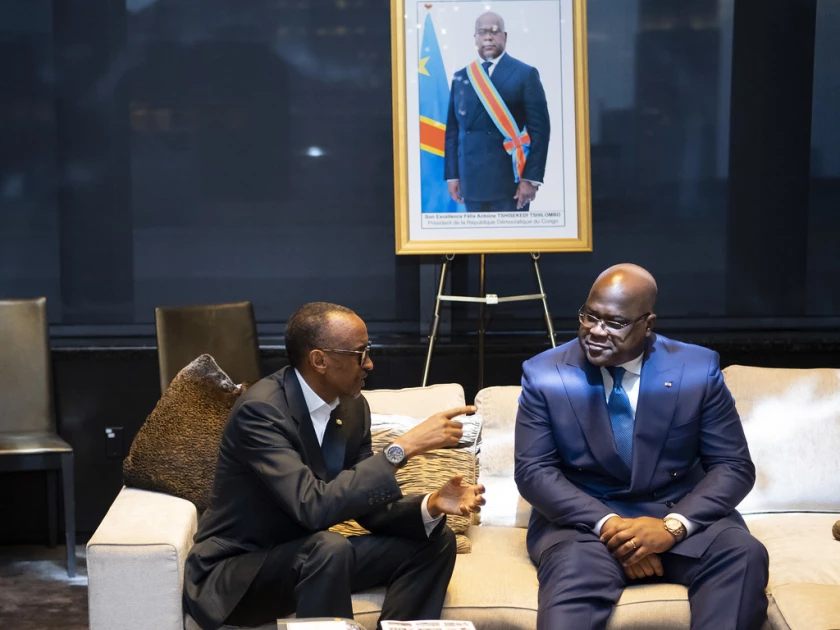Rwanda and the Democratic Republic of Congo are expected to sign a U.S.-brokered peace deal in Washington on Friday, marking a major attempt to end years of violent conflict in eastern Congo that has left thousands dead and displaced millions.
But the agreement, championed by U.S. President Donald Trump, is already facing doubts over its contents, purpose, and long-term implications.
The deal comes after months of secret negotiations involving Washington, Doha, and Lebanese-American businessman Massad Boulos, who was appointed by Trump as a senior advisor on Africa.
The foreign ministers of both Rwanda and DRC will sign the agreement in the presence of U.S. Secretary of State Marco Rubio, with Trump set to host them in the Oval Office. A joint statement ahead of the ceremony promised respect for “territorial integrity,” disarmament of all non-state armed groups, and an end to hostilities.
The conflict reignited in 2021 when the M23 rebel group, composed mostly of ethnic Tutsis, launched a major offensive and captured key areas including the city of Goma.
Kinshasa accuses Kigali of supporting the group—allegations the U.S. also acknowledges—while Rwanda denies involvement and continues to demand action against the FDLR, a Hutu rebel group linked to the 1994 genocide.
Critics of the agreement say it lacks clear commitments and fear it may serve political and economic interests rather than lasting peace. Nobel Peace laureate Denis Mukwege voiced strong opposition to the deal, warning that it could benefit Rwanda without addressing past crimes.
“The deal risks legitimizing the looting of Congolese resources and sacrificing justice in exchange for a fragile and temporary peace,” Mukwege said.
Adding to the controversy, a report by Africa Intelligence claimed the deal includes a clause calling for Rwanda to end its "defensive measures" and for DRC to cut ties with the FDLR.
Rwanda’s Foreign Minister Olivier Nduhungirehe rejected the claim, saying no language about troop withdrawal or the Rwanda Defense Force appears in the final version.
However, DRC’s Foreign Minister Thérèse Kayikwamba Wagner, who visited Washington in April to push for the accord, has insisted that no deal can be genuine without Rwanda’s full withdrawal from Congolese territory. She pointed to years of destruction caused by repeated foreign incursions and rebel activity supported from across the border.
The proposed economic component of the deal has also raised concern. It outlines a "regional economic integration framework" and hints at a future summit with Trump, Rwandan President Paul Kagame, and DRC President Félix Tshisekedi.
Observers believe the U.S. is positioning itself to counter China’s growing influence in Africa while gaining access to DRC’s strategic minerals, such as lithium and cobalt—key materials in electric vehicle production.
DRC has proposed a resource investment structure modeled after a Trump-era deal with Ukraine. At the same time, Rwanda is negotiating with Washington to host deported migrants, aligning with Trump’s hardline immigration policies.
Rwanda had previously entered into a similar agreement with the UK, which was abandoned after a change in government.
As the signing approaches, the deal remains steeped in questions about enforcement and whether it truly addresses the drivers of the decades-old conflict.
For communities living under the constant threat of displacement, militia violence, and foreign-backed warfare, there are fears that the agreement could trade justice and sovereignty for short-term political optics.

